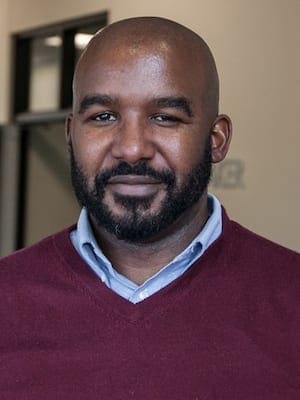As the city of Ferguson and the greater St. Louis metropolitan region braces for the impending grand jury verdict related to the officer involved in the Michael Brown shooting, multiple questions still loom.
Why is this a big deal to minorities? Why are minorities so angry, especially about an event that did not affect them personally?
Why are minorities protesting what some would consider to have been a lawful and necessary response of force by a police officer? Why are some minority groups presenting themselves as victims trapped in an unfair system?
The simple answer is that these groups feel either unrecognized or powerless when events like the Michael Brown shooting occur.
They regularly search for ways to express their frustration when the people and organizations that are charged with helping and serving their community seem to instead regularly inflict pain upon those communities.
In “Pedagogy of the Oppressed,” Latin American educator Paulo Freire discusses the intricacies, challenges and opportunities found within a society where one people group feels like they are being oppressed by another people group.
Freire also addresses how to change the dynamics of the relationship in order to stop the oppression and repair relationships.
Within the text, Freire defines oppression as any action or set of actions that causes a person or people group to not feel fully human or to not be perceived as fully human.
Racial profiling fits under this broad umbrella as well as racially based disinvestment and marginalization.
Based on the evidence of statistical data that has been accumulated and analyzed in the weeks and months following the shooting, there are multiple reasons for minority groups in Ferguson and the St. Louis metropolitan area to feel like they have been oppressed simply because of the color of their skin or their residential address.
Please understand that I am not saying that people within the Ferguson community are oppressed in the same manner as the people living under communist rule who were studied by the author.
But, the people involved in the Ferguson protests clearly feel like they have been marginalized in multiple ways that have made them feel less than human.
According to Freire, the first step to working through the contentious relationships between the perceived oppressor and the perceived oppressed is for there to be a clear acknowledgement of the oppression.
This acknowledgment needs to occur by all parties involved.
Those who are members of the group that has been perceived to oppress have the opportunity to listen to those who feel as if they have been oppressed and understand their points of view without trying to make the people that feel oppressed look like they are less than human.
Freire says that when oppressors are challenged, they will use specific language to begin to describe those who no longer want to be oppressed, such as “those people.”
These words are often used to describe those who have begun to fight against what they understand to be longstanding injustices.
Many of us may not personally oppress a particular people group. Yet, out of respect for all human life and as an attempt to treat each other with dignity, their claim of oppression has to be recognized and explored, not just stepped over in hopes that the claim will be rescinded.
For those involved in navigating the circumstances following the grand jury’s verdict, there is great challenge as well as great opportunity.
There is the challenge and opportunity for transparent leadership, which legitimately allows those who are affected by the issues that have surfaced over the past few months to have a seat at the table to determine the future of their communities.
I offer three initial suggestions for creating and maintaining transparent leadership during these times.
First, leaders can invite members from the community to have a permanent seat at the decision-making table.
Although the governor of Missouri recently attempted to seek out more community input by forming a citizen-based commission to address racial and economic concerns that have been brought up, his choices of high profile members leaves the question of whether his selections were actually community-based or politically based.
Community members should be invited to choose leaders that represent their interests and understand their concerns and desires instead of having leaders with political connections placed over them.
Second, leaders can invite and accept strategic suggestions on improving relationships from grassroots leaders, organizations and community members that regularly serve the people groups that have been adversely affected.
These people and groups better understand the concerns and complaints of those who believe they have been marginalized because they serve on the front lines with them.
Third, there is the opportunity for the political and jurisdictional leaders who are trying to plan for the fallout from the verdict.
They can begin to participate in strategic relationships where minorities, grassroots organizations and community leaders mentor or coach them so they can get firsthand views and explanations of how the communities feel and to better understand the concerns of the affected communities.
By attempting these basic first steps, I believe that the perceived system of oppression found in the St. Louis region, as well as other parts of the world, can be chipped away and replaced with systems that help all parties involved feel fully human.
 Terrell Carter is minister of administration at Third Baptist Church in St. Louis and director of the Foundations in Ministry program for Central Baptist Theological Seminary in St. Louis.
Terrell Carter is minister of administration at Third Baptist Church in St. Louis and director of the Foundations in Ministry program for Central Baptist Theological Seminary in St. Louis.
Editor’s note: Carter’s previous articles on Ferguson are available here and here.
A pastor, author and educator living in St. Louis, Missouri, he is the author of several books, including The Gospel According to Broadway and Taking Apart Bootstrap Theology: Gospel of Generosity and Justice.

